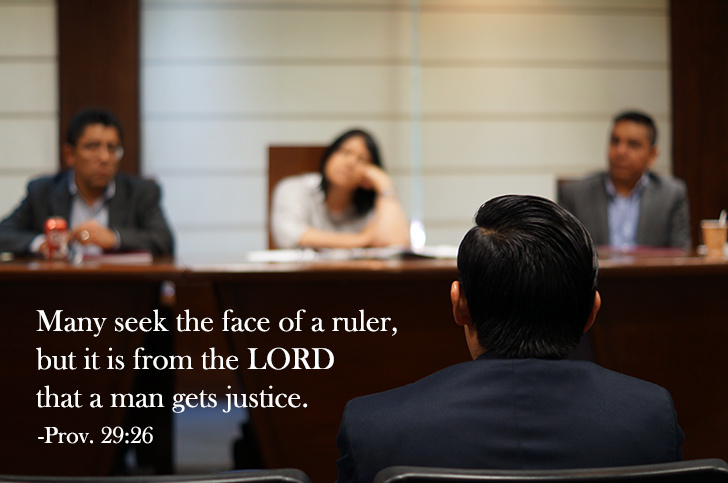
Proverbs 22:26-27 -- Be not one of those who give pledges, who put up security for debts. If you have nothing with which to pay, why should your bed be taken from under you?
Solomon warns the son he addresses in Proverbs against a common road to poverty, enforced with the vivid rhetorical question, “Why should he take away your bed from under you?” There is a kind of gambling disguised as a friendly helping hand, co-signing a student loan, co-signing a mortgage, handing someone else your credit card. If you can’t make good their failure to pay, Solomon warns, you’ll be out on the street.
This proverb should give strength to say no to a pleading friend or family member. “Please, please co-sign this loan for $50,000. Then I can get my pizza shop going. It can’t miss. You’ll never have to pay a thing and will never regret it. The bank won’t give me the loan unless someone co-signs it with me. You’re my best friend, aren’t you? What are friends for? Please help me. I’ll be in your debt forever. Hey, I’ll even name my first son after you.” Solomon advises: don’t co-sign unless you really can afford to pay up, because you do not know the future and your friend may fail. Then you will have to pay. That’s what going surety for a debt means: a moment’s good-natured weakness out of affection and you could end up losing very big, the shirt off your back and the bed that rests your back.
Prudence is a Christian. Paul promised to underwrite the known past liabilities of the converted slave, Onesimus, but he said nothing about possible future debts. Financial wisdom is an aspect of maturity, a virtue that enables one to help others in need, but never by pledging security for debts you cannot afford to pay if you have to. The wise person resists the emotional blackmail that often accompanies pleas to co-sign a loan with a clear-eyed refusal to put his own or his family’s financial stability at risk.
Job uses his unworthiness of surety to express his destitute misery. He says to God, “Lay down a pledge for me with you; who is there who will put up security for me (Job 17:3)?” Having lost everything, Job is such a bad risk that only God would dare be his pledge. Job’s plea intimates the state of the sinner, so deeply in debt that he cannot possibly pay up and needs a friend to pay for him. In mercy and love, that is what God Himself has done for us. He gave His Son, who paid our debt of death for sin, so that in Him we have peace with God and the hope of the Resurrection.
Explore Christ-centered education in a vocational context at Geneva College - admissions@geneva.edu | 800-847-8255.
Dr. Bill Edgar, former chair of the Geneva College Board of Trustees, former Geneva College President and longtime pastor in the Reformed Presbyterian Church of North America (RPCNA)
------
Photo by John Moeses Bauan on Unsplash
Opinions expressed in the Geneva Blog are those of its contributors and do not necessarily represent the opinions or official position of the College. The Geneva Blog is a place for faculty and contributing writers to express points of view, academic insights, and contribute to national conversations to spark thought, conversation, and the pursuit of truth, in line with our philosophy as a Christian, liberal arts institution.
Dec 1, 2020Biblical WisdomRelated Blog Posts
Request Information
Learn more about Geneva College.
Have questions? Call us at 724-847-6505.










 Online Course Login
Online Course Login